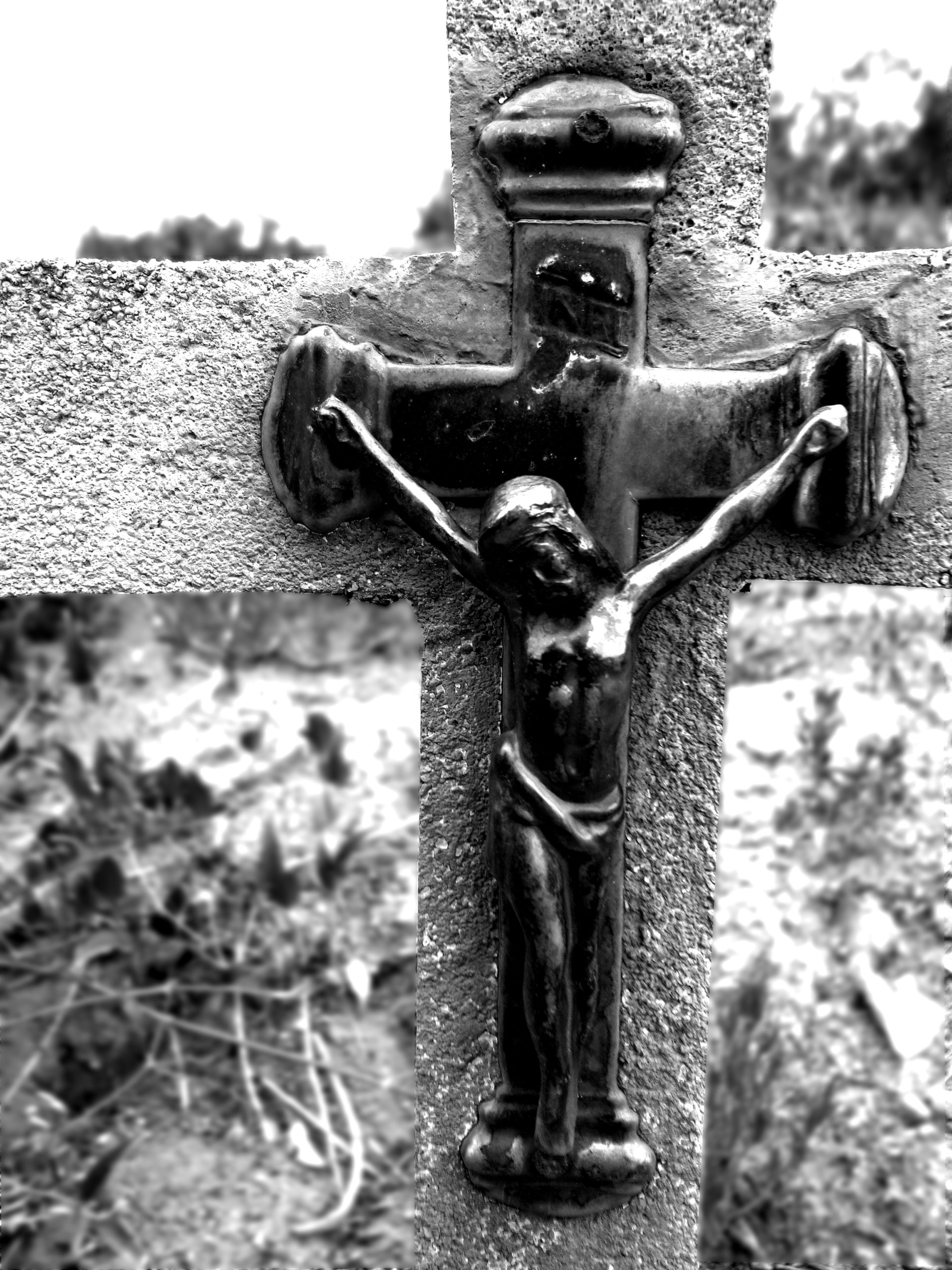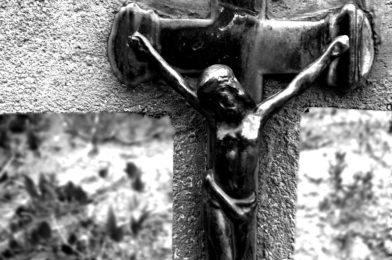In the early morning hours of May thirteenth I was on my morning walk, listening to NPR as I headed south from the seminary campus. I passed the only people in public these days: the men and women experiencing homelessness, sleeping peacefully tucked away in the entrance ways to buildings. The morning was quiet, the sun, warm.
I turned east onto Martin Luther King, Jr. Boulevard as the news reporter continued in my ear: “The killing of a black man in Georgia received little attention in February. Later, a video circulated. And it’s a big part of the news now. The shooting of a black woman in Louisville, Kentucky, received little attention in mid-March. Now that has become part of our national conversation.”[1] That morning I learned about both Ahmaud Arbery and Breonna Taylor, two souls taken from this world, one for jogging while black, the other for sleeping while black. As I moved down the boulevard named for the slain civil rights leader, my heart sank as the story of stolen, innocent lives unfolded before me.
The news cycle continued past these two names and I found myself, two weeks later, scrolling through Facebook where I came across the now-infamous photo of a white police officer, his hands casually in his pockets as he knelt on the neck of a black man.[2] I had no context for the photo at the time – I didn’t know why George Floyd was face-down on the pavement, and as I looked at that picture, it really did not matter. Deep in my body there was an immediate gut-wrenching…as I unknowingly witnessed the murder of a black man. If you have seen the photo, you have witnessed the murder of a black man. And we have all seen it. We have all witnessed the murder of a black man.
*****
Matthew 9:35-10:8 (NRSV)
“Then Jesus went about all the cities and villages, teaching in their synagogues, and proclaiming the good news of the kingdom, and curing every disease and every sickness. When he saw the crowds, he had compassion for them, because they were harassed and helpless, like sheep without a shepherd. Then he said to his disciples, “The harvest is plentiful, but the laborers are few; therefore ask the Lord of the harvest to send out laborers into his harvest.”
Then Jesus summoned his twelve disciples and gave them authority over unclean spirits, to cast them out, and to cure every disease and every sickness. These are the names of the twelve apostles: first, Simon, also known as Peter, and his brother Andrew; James son of Zebedee, and his brother John; Philip and Bartholomew; Thomas and Matthew the tax collector; James son of Alphaeus, and Thaddaeus; Simon the Cananaean, and Judas Iscariot, the one who betrayed him.
These twelve Jesus sent out with the following instructions: “Go nowhere among the Gentiles, and enter no town of the Samaritans, but go rather to the lost sheep of the house of Israel. As you go, proclaim the good news, ‘The kingdom of heaven has come near.’ Cure the sick, raise the dead, cleanse the lepers, cast out demons. You received without payment; give without payment.”
*****
The Jesus we see in Matthew is a busy Jesus: having been baptized and tempted, Jesus has returned to Galilee where he begins to proclaim that “the kingdom of heaven has come near” (4:17). His proclamation on the mountainside is recorded in chapters five through seven, and afterward, Jesus goes full-speed through the region performing all sorts of miracles: he heals the lame, he casts out demons, he calms the seas, and he raises the dead. Only briefly does Jesus slow down to call Matthew into service and have a conversation with both the pharisees and John’s disciples. Our Lord then gets back to work and, to make up for lost time, performs four more miracles within ten verses!
And we finally land in today’s passage, where it summarizes the busy-ness of Jesus: he’s seen the sick, the wounded, the blind, the lame, the diseased. He’s cared for the abused, the weak, the poor – and the rich. It feels like he’s worked non-stop since he left that mountain: Jesus is still at work proclaiming the good news, curing disease and sickness, bringing dead to life.
Within all this furious movement, it is here that the biblical text seems to stop. And it focuses on this moment, saying: “When he saw the crowds, he had compassion for them.” Jesus stops long enough to see the crowds of people around him. He witnesses their diseases, their wounded-ness, their dejection.
The text says Jesus felt compassion for them. The Greek word for compassion that is used here is ἐσπλαγχνίσθη (esplanchnisthē) – it is a feeling in the inner-most parts of the body, where one’s heart-feelings reside. Jesus’ compassion as he saw the crowd was a gut-feeling – a deep, heartfelt, emotional compassion. The verse could read: “Jesus, seeing the crowds was a gut-wrenching moment and he felt nothing but compassion for them…” He felt punched in the gut because when he looked – when he honestly looked – he saw people who were harassed and helpless…people who were wounded and tired…people who were like lost sheep without a shepherd in sight.
As overwhelming as it may seem to us to see a crowd of needy people, for our Lord it was a catalyst toward action as he moves into action, responding to the needs of the people. His compassion moves him into action. His compassion moves him forward. His compassion moves him to recruit helpers.
In the name of compassion, Jesus speaks to his disciples, telling them to see as he sees: the harvest is plentiful, but the workers few. He tells his disciples to change their vision so they can see the needs staring them in the face.
In the name of compassion, Jesus tells them to pray for God to send workers, and quickly they become the answer to their own prayers – the disciples become the apostles, the laborers in the Lord’s harvest.
In the name of compassion, Jesus summons the twelve and gives them authority to do just as he himself has been doing: casting out unclean spirits, healing socially-devaluing illnesses, curing every bodily sickness.
In the name of compassion, Jesus calls them by their name: from Peter – the rock upon whom Jesus will build his church – all the way to Simon the Zealot and Judas the betrayer. Jesus calls this imperfect group and commissions them to do the compassionate service needed in the world. These men didn’t meet the needs of the people: God meets the needs of the people through them.
In the name of compassion, Jesus gives them a specific and timely mission: go not to the Gentiles, nor to the Samaritans, but go instead to the lost sheep of the house of Israel. And as they go they should spread compassion by not only proclaiming the good news, but by curing the sick, cleansing the lepers, casting out demons, raising the dead.
In the name of compassion, Jesus makes these disciples his apostles and sends them out to the lost sheep.

Ahmaud Arbery. Breonna Taylor. George Floyd. Three persons of color murdered in the land of the free. Three Americans slaughtered for being non-white – three of but thousands upon thousands of now-saints who have been harassed, mocked, stalked, targeted, arrested, beaten, murdered and assassinated. We are witnesses to these crimes.
The crowds are crying with exhaustion…do you see?
The virus continues to ravage the weak and elderly…do you see?
Our leaders continue to remain hidden in their ivory houses…do you see?
We cast one another down with our hands and our voices…do you see?
God’s beloved children – just like you and me – are cowering like helpless animals, wondering where our leaders are…wondering where hope is…wondering if times like these are too difficult, even for the Lord.
Look. The children need diapers and formula and shelter.
Look. The men and women need jobs and financial assistance.
Look. The schools need funding, and buildings, and teachers.
Look. The hospitals need masks, and gloves, and workers.
The harvest is plentiful, but the laborers, are few.
We have gathered as disciples under the teachings of Jesus long enough. Open our eyes. Look at the crowds. Jesus is summoning us even now, and is gifting us with the authority to do as he does. Jesus is calling each of us by name. Jesus is calling us to be apostles, to be sent out.
The kingdom of heaven draws near!
With gut-wrenching compassion, let us proclaim the good news of the royal reign of God!
With gut-wrenching compassion, let us drive out unclean spirits!
With gut-wrenching compassion, let us heal every socially-devaluing illness and every bodily sickness to which we bear witness.
Return life to the dead…make clean the unclean…drive out evil.
You saw his face pressed against the hot asphalt…
You saw the violent response to peaceful protests…
You saw the homeless man on the corner this week…
You saw news of an elderly person’s death from the coronavirus…
My God, the harvest is plentiful!
[1] “Shooting of Unarmed Black Woman In Kentucky Gets National Attention” NPR: Morning Edition, May 13, 2020. https://www.npr.org/2020/05/13/855096212/shooting-of-unarmed-black-woman-in-kentucky-gets-national-attention
[2] “Killing of George Floyd” Wikipedia, last modified June 10, 2020. https://en.wikipedia.org/wiki/Killing_of_George_Floyd
*****
[This is the text of the sermon I preached for the Committee on the Preparation for Ministry for the Presbytery of Pueblo – one of the required steps in the ordination process for the PC(USA)]

